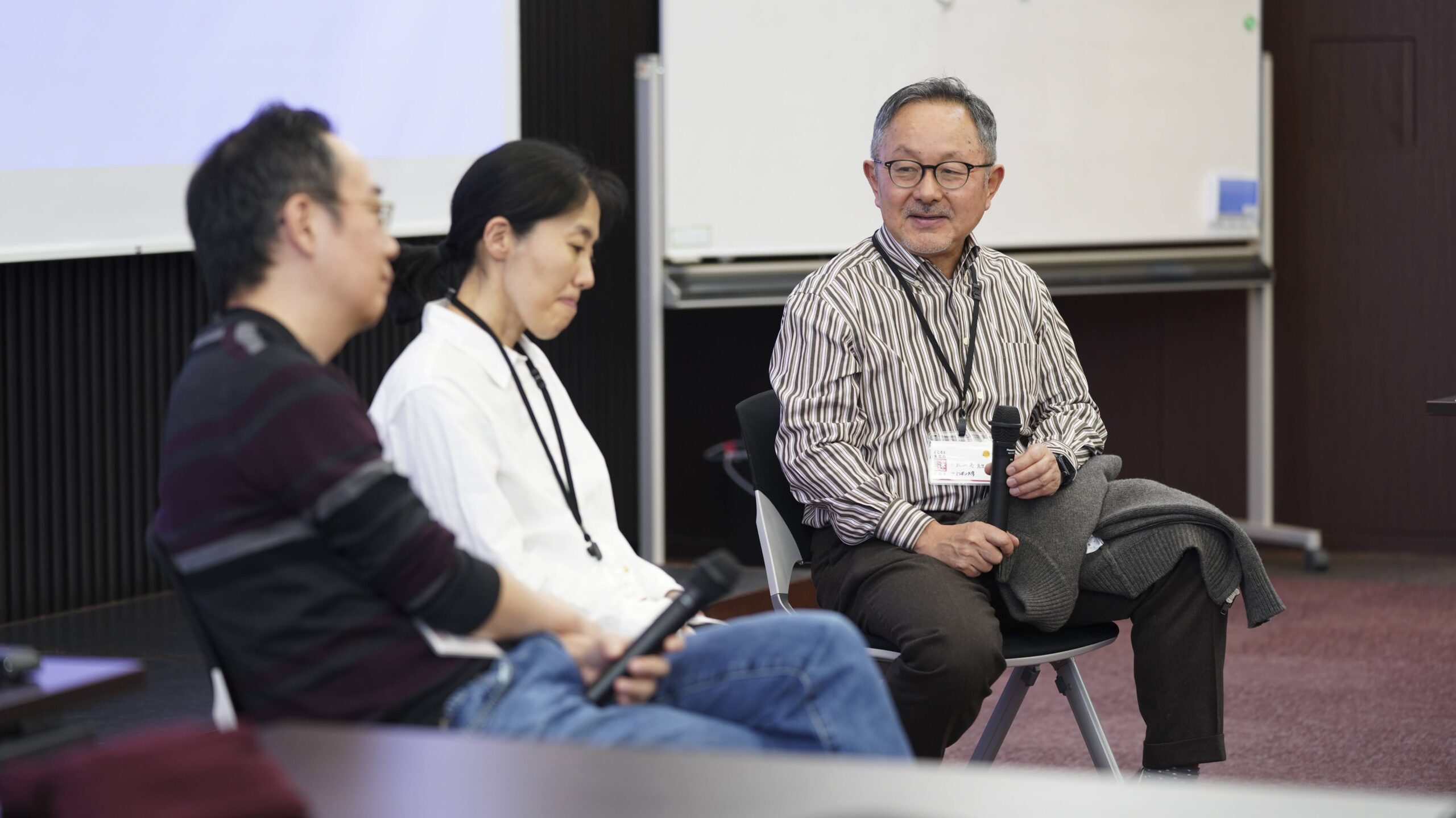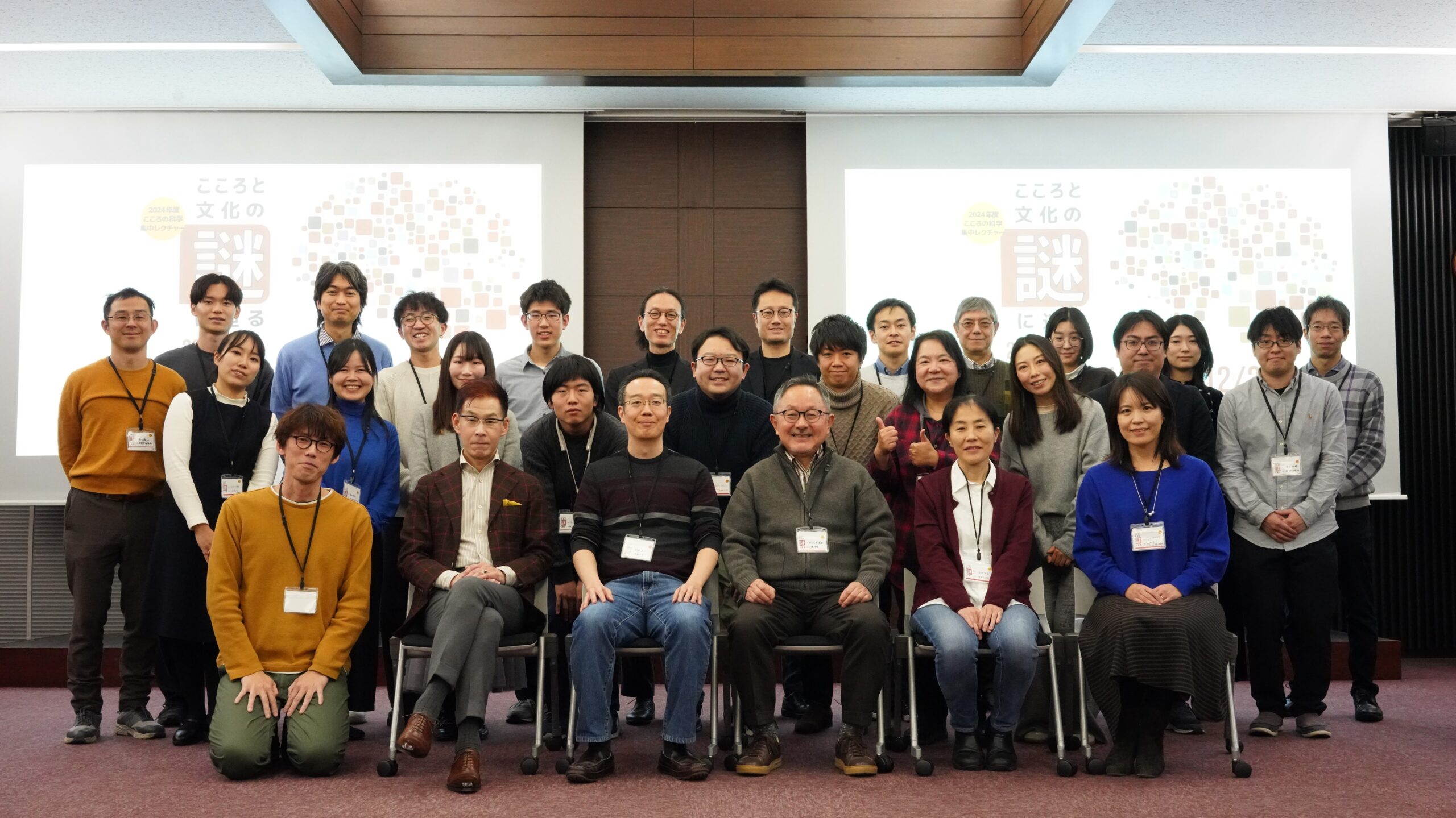The 2024 Mind Science Intensive Lecture Series: “Exploring the Mysteries of Mind and Culture” was organized by the IFoHS (December 19–21, 2024)
2025.03.18
At the Institute for the Future of Human Society, we held the 2024 Mind Science Intensive Lecture Series titled “Exploring the Mysteries of Mind and Culture” from December 19 to December 21, 2024.
The Mind Science Intensive Lecture Series is a unique event where leading researchers in mind science from Japan and abroad deliver in-depth lectures and engage in discussions with participants over three days.
For the 2024 session, we welcomed Professor Shinobu Kitayama from the University of Michigan, Professor Keiko Ishii from Nagoya University, and Professor Nobuhito Abe from the Institute for the Future of Human Society as our distinguished speakers. Together, they explored the intricate relationship between culture and psychology from multiple perspectives. Through lectures and discussions on the latest research in cultural neuroscience, cognitive science, and cultural psychology, participants gained deeper insights into the profound connections between mind and culture.
This year, in addition to students and researchers, we also invited participants from the industrial sector, fostering lively discussions from the perspective of industry-academia collaboration.
◆ Day One
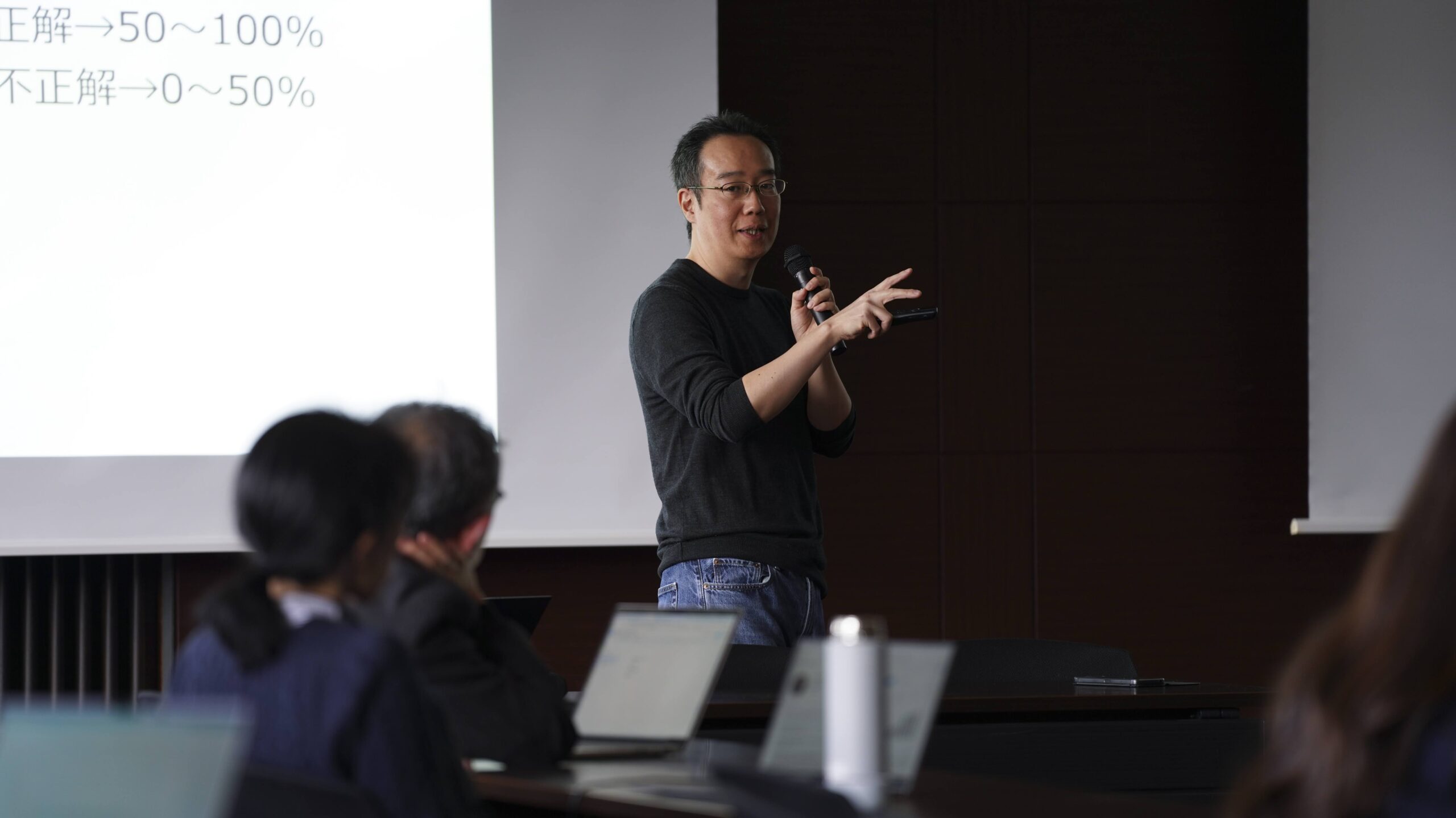
The first day featured a lecture by Professor Nobuhito Abe, who presented specific examples illustrating how decision-making research bridges neuroscience and psychology.
In the morning session, studies on the mechanisms of honesty and deception were introduced. The findings revealed that honesty varies depending on situational factors and individual characteristics. Participants with low sensitivity to monetary rewards exhibited automatic honesty, while those with high sensitivity relied on willpower to maintain honesty. An intriguing result showed that individuals with strong psychopathic tendencies could lie without experiencing internal conflict, prompting reflections on how social values and morality influence decision-making processes. The discussion further emphasized the importance of individual differences in neural activity related to reward prediction and cognitive control. Viewing these differences as a continuum across individuals, the lecture suggested a reconsideration of traditional views of human nature, challenging the binary of humans as inherently good or evil.
The afternoon session highlighted a collaboration between psychology research and data science, using behavioral data from individuals playing baccarat at casinos to analyze betting behavior. Research on gambling addiction is closely tied to decision-making studies, and the analysis showed that gamblers tend to place larger bets as the number of bets increases. Additionally, winning streaks often led to reckless betting behavior. During the discussion, participants noted that gambling addiction is heavily influenced by heightened expectations of rewards, underscoring the importance of early detection and intervention for gambling addiction in Japan.
◆ Day Two
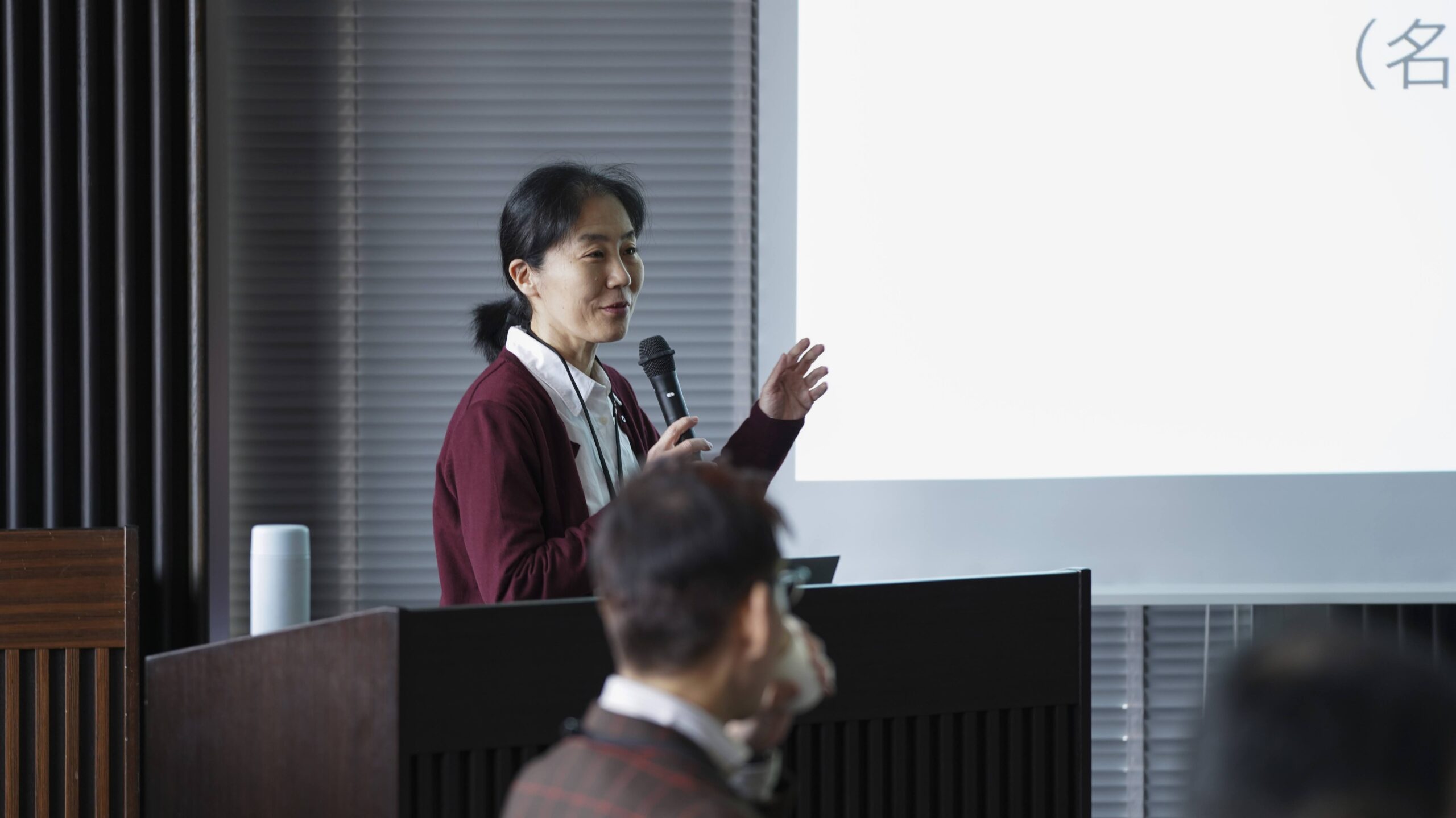
On the second day, Professor Keiko Ishii delivered a lecture on the themes of “Cultural Value Transmission” and “Cultural and Genetic Coevolution.”
In the morning session, research was introduced showing how preferences for cultural products such as advertisements, textbooks, and other textual information, as well as feedback patterns from parents to children, help convey the values prioritized within each culture. The lecture discussed how living within a culture leads us to inadvertently acquire dominant values, and how this process contributes to passing these values on to the next generation.
In the afternoon session, research was presented on how genetic polymorphisms influence the degree to which anxiety tendencies, social alienation pain, and early childhood stress experiences affect later susceptibility to depression. It was also noted that certain alleles are more prevalent in specific cultural groups, and that individuals with particular alleles may shape social and cultural environments. These environments may, in turn, exert selective pressure on those genetic traits, contributing to cultural and genetic coevolution. This lecture highlighted the potential for a deeper understanding of how the interaction between macro-level cultural foundations and micro-level genetic information may deepen our self-awareness.
◆ Day Three
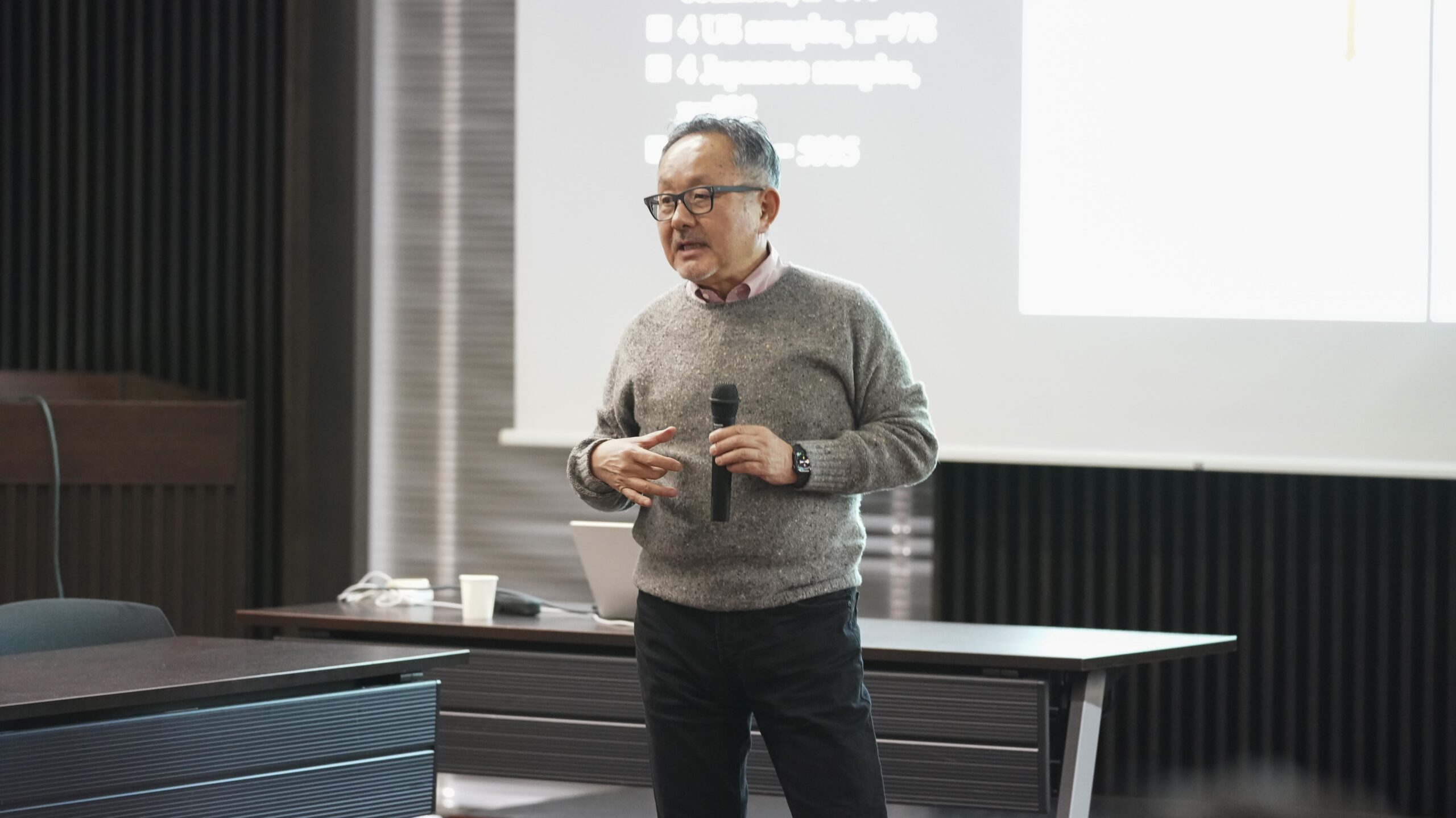
On the third day, Professor Shinobu Kitayama delivered a lecture on new directions in cultural psychology, with a focus on African studies.
In the morning session, Professor Kitayama shared his personal life history and discussed the historical development of cultural psychology from its early stages to the rise of cultural neuroscience. He argued that African studies provide a unique opportunity to update the traditional “Cultural Psychology 1.x” framework. African cultures exhibit many cooperative traits, yet also demonstrate strong competition even among close relatives—an apparently contradictory characteristic. The dynamics behind this were the central focus of the discussion.
In the afternoon session, the lecture and discussion centered on the African cultural trait in which individual success is closely linked to group success. Based on Professor Kitayama’s research, it was argued that the tendency of African people to take great pride in the success of their peers and the fusion of self-promotion with mutual cooperation could be traced back to the coevolution of humans with large animals. The session concluded with a lively discussion on the theme “What can we learn from African studies?” This sparked a stimulating exchange of ideas.
